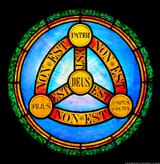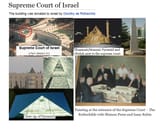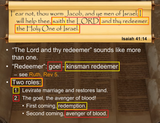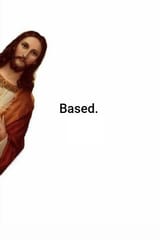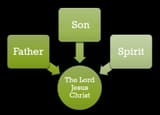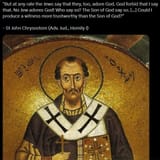>>516109604 (OP)
The struggle for a truly monotheistic faith
Early Christianity was born from the Jewish tradition, which fiercely rejected any hint of polytheism. The earliest Christians were all Jewish and identified as a sect of Judaism. They accepted the divinity of Jesus based on their reading of Old Testament prophecy and their experience of Jesus' life, death, and resurrection.
The challenge was to reconcile how they could worship Jesus as divine while maintaining their core monotheistic belief. This led to internal debates, not an easy acceptance of a pagan-like trinity.
Early Christian divisions over the nature of God
Rather than a smooth transition from polytheism, early Christianity was rife with bitter and sometimes violent disputes over the nature of God, Jesus, and the Holy Spirit.
Ebionites: Believed Jesus was the Messiah but rejected his divinity, insisting he was a human prophet. This preserved a strict monotheism.
Adoptionists: Argued that Jesus was not born divine but was "adopted" by God at his baptism. This was an attempt to keep Jesus separate from the one God.
Arians: Taught that Jesus was the most exalted of God's creations but not co-eternal with the Father. Arianism was a major theological crisis in the 4th century, demonstrating how fiercely Christians protected monotheism from what they viewed as a challenge. The Council of Nicaea (325 AD) condemned Arianism and affirmed the eternal divinity of Jesus.
Modalists (Sabellianism): Proposed that God is a single person who appears in three different "modes" (Father, Son, and Holy Spirit) at different times. This was also rejected by the early church because it denied that the three "persons" are eternally distinct.
 9/15/2025, 5:01:30 PM
No.516109604
>>516110008
>>516111600
>>516111655
>>516111774
>>516111846
>>516112445
>>516112887
>>516113054
>>516113435
>>516113614
>>516113634
>>516113700
>>516113747
>>516114012
>>516114362
>>516115310
>>516116116
>>516116195
>>516117778
>>516117938
>>516119001
>>516119082
>>516119530
>>516119561
>>516119593
>>516120342
>>516120812
>>516121253
>>516121537
>>516122724
>>516123126
>>516123794
>>516123808
>>516123999
>>516124145
>>516125106
9/15/2025, 5:01:30 PM
No.516109604
>>516110008
>>516111600
>>516111655
>>516111774
>>516111846
>>516112445
>>516112887
>>516113054
>>516113435
>>516113614
>>516113634
>>516113700
>>516113747
>>516114012
>>516114362
>>516115310
>>516116116
>>516116195
>>516117778
>>516117938
>>516119001
>>516119082
>>516119530
>>516119561
>>516119593
>>516120342
>>516120812
>>516121253
>>516121537
>>516122724
>>516123126
>>516123794
>>516123808
>>516123999
>>516124145
>>516125106
